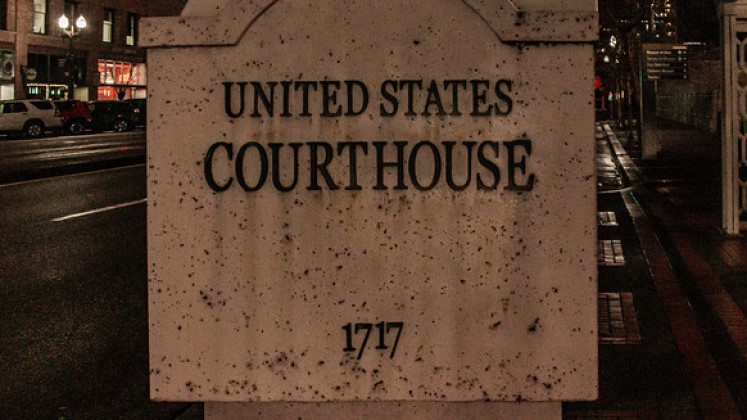 For more than a century, police forces have used the idea of “policing by consent” to gain legitimacy among the public. William Smith writes that the principle is flawed, with questions as to what “consent” really means, whether there is a “public” who can consent to policing and disconnects between procedural fairness and the fairness of the criminal justice system. Rather than relying on the idea of policing by consent, he writes, police reforms should be guided by the civic republican idea that those who are policed can push back or contest how they are policed through enhanced oversight mechanisms and deliberative mechanisms and regulations.
For more than a century, police forces have used the idea of “policing by consent” to gain legitimacy among the public. William Smith writes that the principle is flawed, with questions as to what “consent” really means, whether there is a “public” who can consent to policing and disconnects between procedural fairness and the fairness of the criminal justice system. Rather than relying on the idea of policing by consent, he writes, police reforms should be guided by the civic republican idea that those who are policed can push back or contest how they are policed through enhanced oversight mechanisms and deliberative mechanisms and regulations.
The doctrine of “policing by consent” emerged in the UK in the 19th century as a means of lending legitimacy to professional police forces. Its core idea is that “the power of the police to fulfil their functions and duties is dependent on public approval of their existence, actions and behaviour and on their ability to secure and maintain public respect”.
The idea that legitimate policing is dependent upon the consent of the policed remains an influential point of reference across the English-speaking world. Its ideas are often invoked in public debates about how best to respond to recurrent crises in policing. Consider, for example, the 2015 “Final Report” of the President’s Task Force on 21st Century Policing, commissioned in response to the ongoing cycle of police violence against Black and brown communities in the US. The report offers a range of recommendations on how “policing practices can promote effective crime reduction while building public trust”. This goal of rebuilding trust between the police and the policed is underpinned by, and entirely in keeping with, policing by consent.
The goal of cultivating the consent of the policed is unfeasible and undesirable
Despite its positive aims, the idea of policing by consent has a number of problems. First, what does “consent” to policing really mean? It is, as political philosophers have long argued, incredibly difficult to determine how consent can be signalled, whether it can be implicit or must be explicit, the necessary degree of voluntariness, or how consent might be withdrawn. Even when police are required to secure consent from the policed, many citizens lack the knowledge or confidence necessary to make an informed or uncoerced choice.
Second, decades of social change have undermined the idea of a unitary “public” whose support could be cultivated by police. The divided and disaggregated nature of the public means that police often end up prioritizing the perspectives of dominant societal groups – for example, white men – at the expense of those subject to domination. The primary function of “consent” in the UK, according to this line of thought, is to shore up sufficient support for the police to perform their duties, rather than to allow for genuine agency on the part of the policed.
Third, attempts to cultivate public support can lead to misplaced priorities in policing. Consider, for example, the influential idea of “procedural justice”, which shares with policing by consent a commitment to fostering approval of the police through professional and courteous conduct. The concern, as astute critics of the procedural paradigm have noted, is that leaving the policed with a sense of being treated fairly by officers is not equivalent to ensuring that the criminal justice system functions to safeguard their fundamental interests.
Police reform should be guided by the aim of improving mechanisms through which the policed can contest the actions of the police
There is a compelling alternative to thinking about legitimate policing in terms of the unrealistic notion of consent. That alternative is suggested by the civic republican idea that people should be independent from, and be able to resist, the seemingly random use of power. Of particular relevance is the republican emphasis on contestation on the part of those subject to arbitrary interference at the hands of others. For civic republicans, the goal of legitimacy should be pursued through empowering citizens to push back against policies and controlling interference that are experienced by them as domineering. The core goal, according to this perspective, is to ensure that policing is subject to an inclusive and responsive regime that includes ways that people can push back on how it operates.
This requires strengthening the familiar, but in practice often deficient, oversight mechanisms that enable officers and agencies to be held accountable in the light of conduct that is unlawful or unprofessional. The language of contestation captures a clear, intuitive, and highly communicable rationale for subjecting policing to far more responsive forms of legal accountability and regulatory oversight than is currently the case.
It also requires reforming the practices associated with the wave of interest in “community policing”, such as beat meetings in Chicago and community safety partnerships in Los Angeles. These forums were established with the laudable goal of allowing police and communities to collaborate over the identification and prioritization of problems. In practice, though, the consultive process has been compromised by its tendency to be captured by either the police or by privileged segments of the community. There is, furthermore, a pervasive concern that facilitating consultation through such forums is not the same as giving the policed an effective say in decisions about police strategies and priorities.

Photo by Clay Banks on Unsplash
Furthermore, the crucial functions that civil society perform in a contestatory regime must be protected. These functions include serving as a source of direct assistance for people who have experienced domination at the hands of the police, disseminating knowledge and information about policing that might not otherwise come to light, and amplifying complaints about and challenges to police through the power of collective agency. The importance of protest to the performance of these functions goes without saying, which makes legislation that increases the power of the police to restrict this basic freedom all the more alarming.
The claims that are raised against the police should be channelled through a deliberative process.
Policing by contestation as a civic republican alternative to policing by consent is subject to a range of challenges. A particularly serious concern is that the system might be overwhelmed by insubstantial or frivolous claims, such that the most grave or troubling allegations about policing are drowned out. It is therefore vital that democratic contestation is accompanied by deliberative regulation, which should serve to filter and sift citizen inputs through an effective system of institutional oversight.
The problem of creating deliberative mechanisms to regulate policing is both urgent and difficult. If tried-and-tested “community policing” initiatives appear to have exhausted their potential, it nonetheless appears naïve to think that civil society could by itself deliver an inclusive and responsive system of regulatory oversight.
The pathway toward deliberative regulation should instead include experimenting with the range of institutional designs that have proliferated under the heading of “democratic innovations”. These innovations share certain features that might offset or avoid the shortcomings of, say, beat meetings. Their membership is not self-selecting but rather consists of a small number of participants who have been selected through sortition in order to broadly represent the diverse perspectives found across a much larger population. An ongoing attempt to organize a Citizens’ Assembly to engage with the London (UK) Metropolitan Police could be a useful barometer of how democratic innovations could contribute to enhanced deliberative regulation in policing.
Reimagining policing through contestation and deliberation
The reorientation of policing around a norm of contestation establishes an open-ended process with multiple pathways. If people converge around a shared conviction that their current system of policing is unsustainable, it should at least be possible, through a mutually supporting and continual process of contestation and deliberation, to transform that system from the ground up. This is an inescapable implication of the civic republican commitment to empowering the policed through facilitating their contestation of the police.
- This article is based on the paper, ‘Republican Policing: From Consent to Contestation’, in Perspectives on Politics.
- Please read our comments policy before commenting.
- Note: This article gives the views of the author, and not the position of USAPP – American Politics and Policy, nor the London School of Economics.
- Shortened URL for this post: https://wp.me/p3I2YF-dPK






